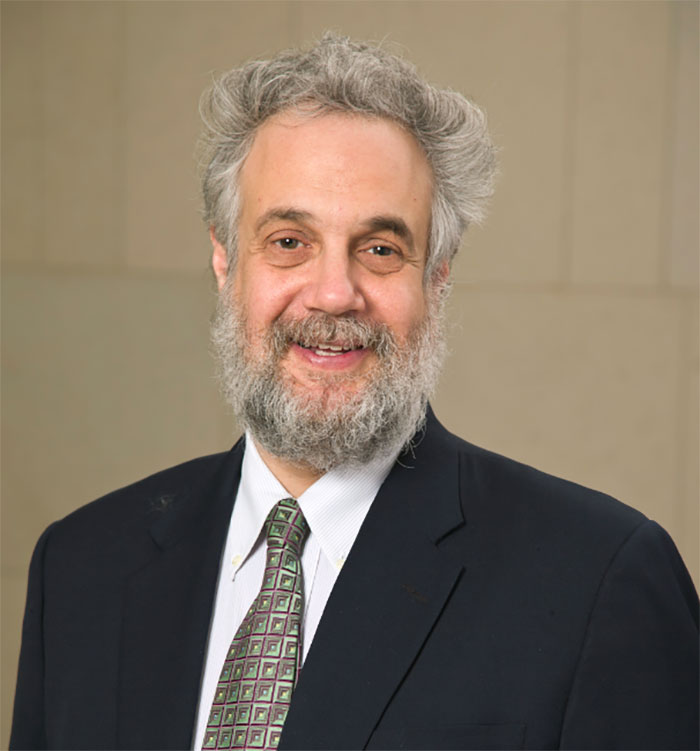Accelerating Alzheimer's Disease Research
October 09, 2019
UH joins other healthcare leaders to advance dementia diagnosis and care
Innovations in Neurology & Neurosurgery | Fall 2019
University Hospitals Cleveland Medical Center and four other Cleveland organizations have joined forces to accelerate research into Alzheimer's disease and related dementias.
 Alan Lerner, MD
Alan Lerner, MDFunded by the National Institute on Aging of the National Institutes of Health (NIH), the Cleveland Alzheimer's Disease Research Center (ADRC) is one of 31 in the country and the only one in Ohio. It will focus on improving diagnosis and care. The ultimate goal: Develop therapies to cure and even prevent these diseases.
“Alzheimer’s disease is a major social problem,” says Alan Lerner, MD, Director of the Brain Health and Memory Center at UH Cleveland Medical Center; and Professor of Neurology, Case Western Reserve University School of Medicine. “We’re excited to be part of what we see as a renaissance in Alzheimer’s disease research in Cleveland.”
PUBLIC HEALTH CRISIS
About 5.8 million Americans live with Alzheimer’s disease, according to the Alzheimer’s Association. Without new treatment to effectively slow, prevent or cure the disease, that number is expected to climb to 13.8 million by 2050 — more than the entire population of New York City and Los Angeles combined.
The Cleveland ADRC will focus on four primary areas:
- Rapidly progressing Alzheimer's disease
- Lewy body dementia
- Healthy individuals at risk for developing dementia
- Minorities
The center itself contains eight cores, many of which are headed by University Hospitals physicians. Dr. Lerner heads the clinical core. Among other duties, this group will develop a research registry of well-characterized individuals, whom they’ll follow long term. “This is a central function of the center, to create a cohort that we study until death for brain-behavior correlation,” says Dr. Lerner.
Brian Appleby, MD, UH Neurology Institute, and Associate Professor, Case Western Reserve University School of Medicine, and Mark Cohen, MD, UH pathologist and Professor of Pathology, CWRU School of Medicine, lead the neuropathology core. That team will study brains at autopsy to determine how their brain structure differs from that in other patient groups. Other UH physicians who oversee core areas include Martha Sajatovic, MD, Director of the Neurological and Behavioral Outcomes Center at UH and Professor of Psychiatry, CWRU School of Medicine, will lead Outreach, Recruitment and Engagement; and Andrew Pieper, MD, Ph.D., Director of Neurotherapeutic Discovery in the Harrington Discovery Institute at UH and of the VA, will lead Translational Therapeutics..
“University Hospitals is central to this collaboration, and that a testament to our hard work over the years,” says Dr. Lerner. UH physicians will work alongside top researchers and clinicians from UH, Case Western Reserve University, Cleveland Clinic, Louis Stokes Cleveland VA Medical Center, and MetroHealth System.
Without the Cleveland ADRC, qualifying patients would have to travel to Pittsburgh; Ann Arbor, Michigan; or Indianapolis to participate in ADRC-related clinical research.
Patient need, combined with a diverse population and a strong track record with Alzheimer’s disease clinical trials, made Cleveland and UH a logical choice for a new center. “We’ve built the infrastructure to make this possible,” says Dr. Lerner. “We’re one of the best-enrolling sites in the nation. We participated in the SPRINT MIND study, which looked at the relationship between blood pressure and mild cognitive impairment. Our involvement with the Cleveland ADRC builds on all the research we’ve conducted and care we’ve provided over the past 10 years.”
NIH-funded Alzheimer’s Disease Centers have contributed to work on Alzheimer’s disease and Alzheimer’s disease-related dementias for more than 30 years. These centers have made contributions to large genetic studies, developed amyloid imaging and helped improve understanding of Alzheimer’s disease heterogeneity, among other accomplishments. The latest round of ADRCs build on this history and reflect the government’s support of Alzheimer’s disease research.
Patients who visit Cleveland’s ADRC can get help with diagnosis and care resources, information about the disease, support services and research opportunities. Their participation will support research into better treatments and prevention not only for their own disease but for future generations as well.
“Dementia is really about people,” says Dr. Lerner. “It’s easy to lose sight of that with all the focus on technology, genetics and imaging. We have to remember this disease affects the entire family, and this research has an important benefit to society.”
The Cleveland ADRC will start recruiting around late October 2019. Potential participants include people with normal brain function who are at risk for developing dementia, African-Americans, and individuals with Lewy body dementia and rapidly progressing dementia.
To learn more about the Cleveland ADRC and to find out about available clinical trials, contact cadrc@case.edu or 1-833-311-ADRC (2372).





